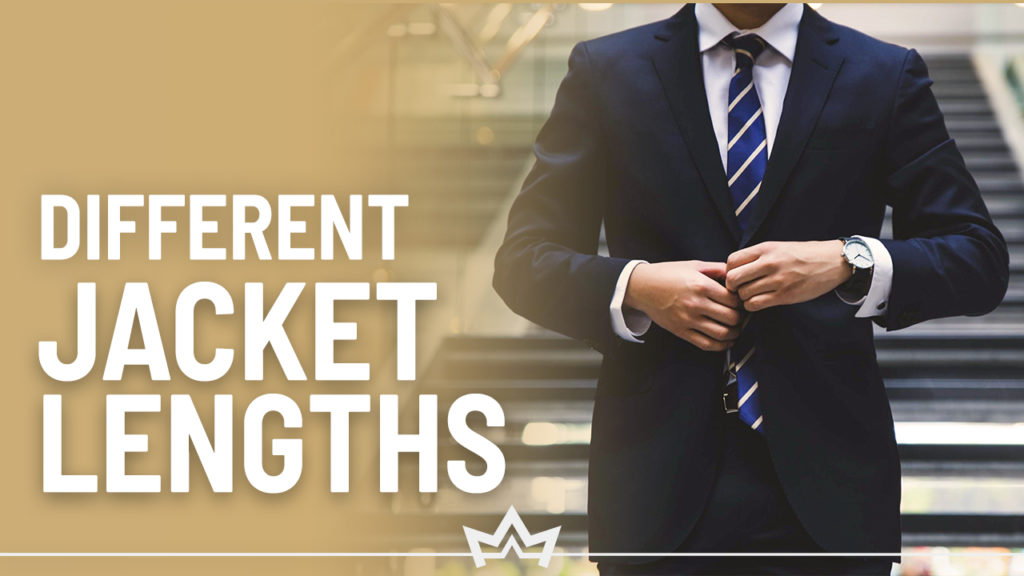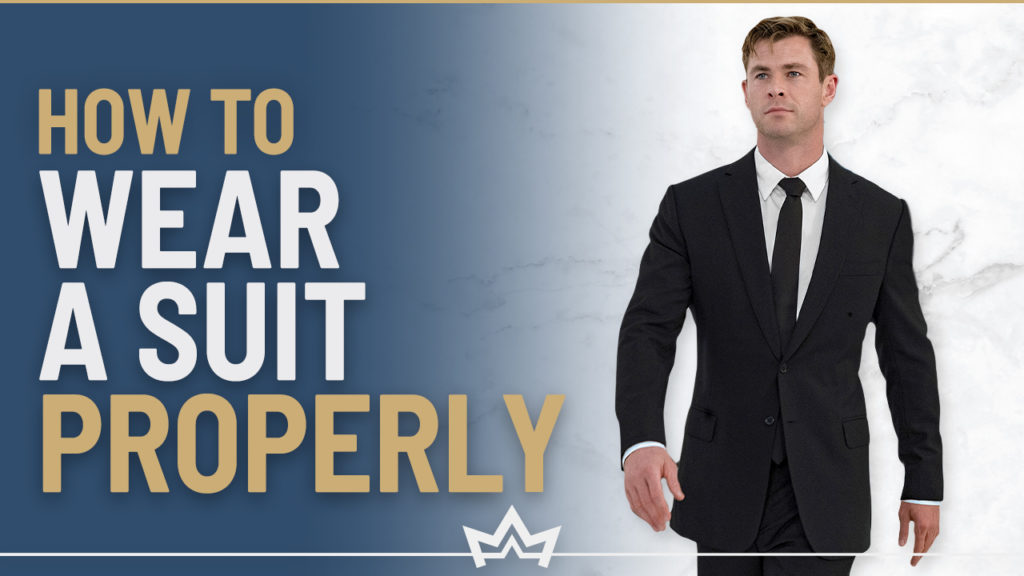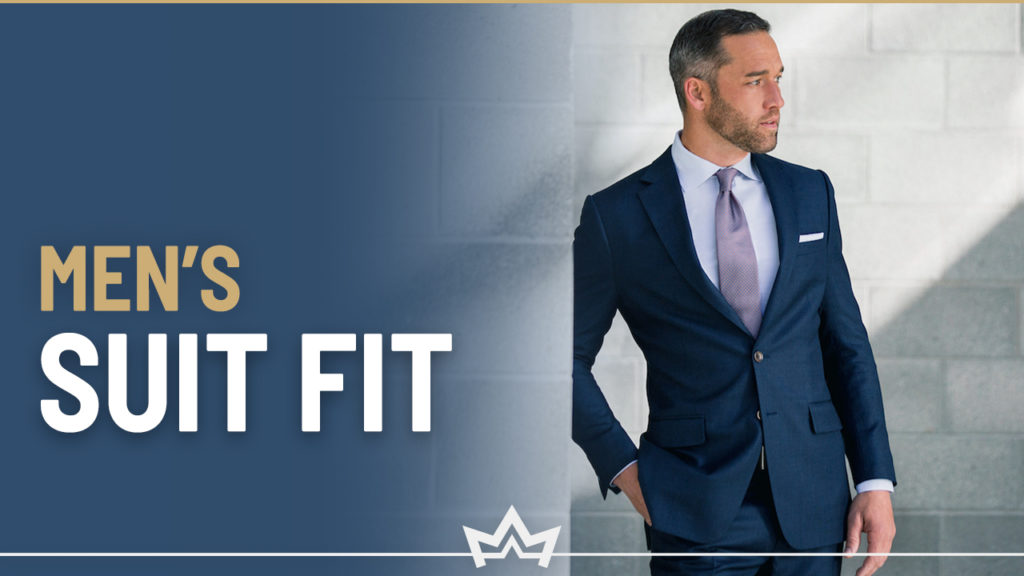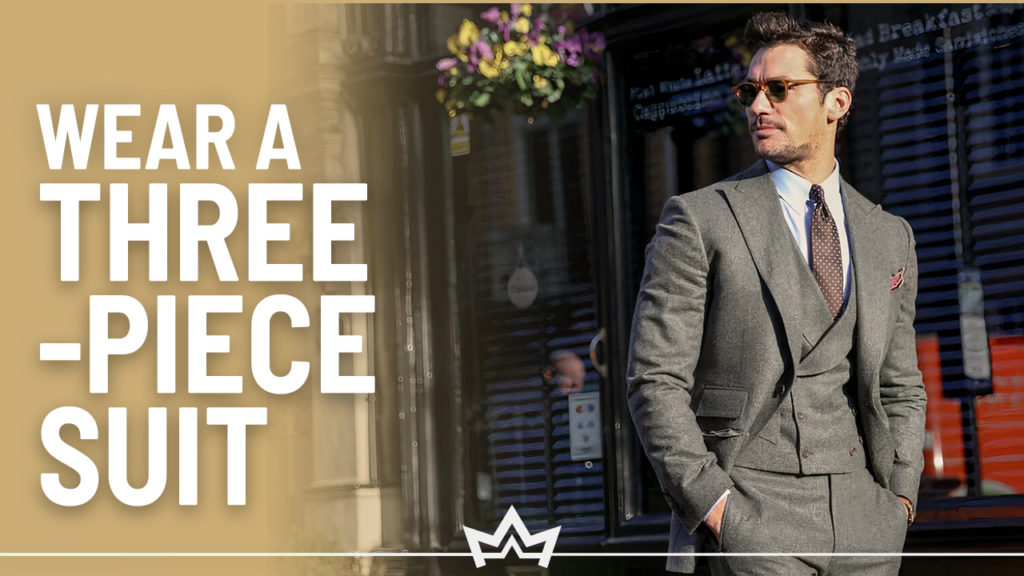Most men’s suits have a number accompanied by a descriptive letter on the label.
The number indicates the chest measurement and jacket size in inches, and the letter stands for the jacket length proportionate to the chest size number.
For example, you could find a jacket with a chest size of 42 inches and a jacket size L (long).
So how to figure out if it’s the right jacket length for you if you don’t possess vital knowledge? Let’s find out!
What’s the Proper Jacket Length?
Visually, a proper jacket length does not overwhelm you while wearing it.
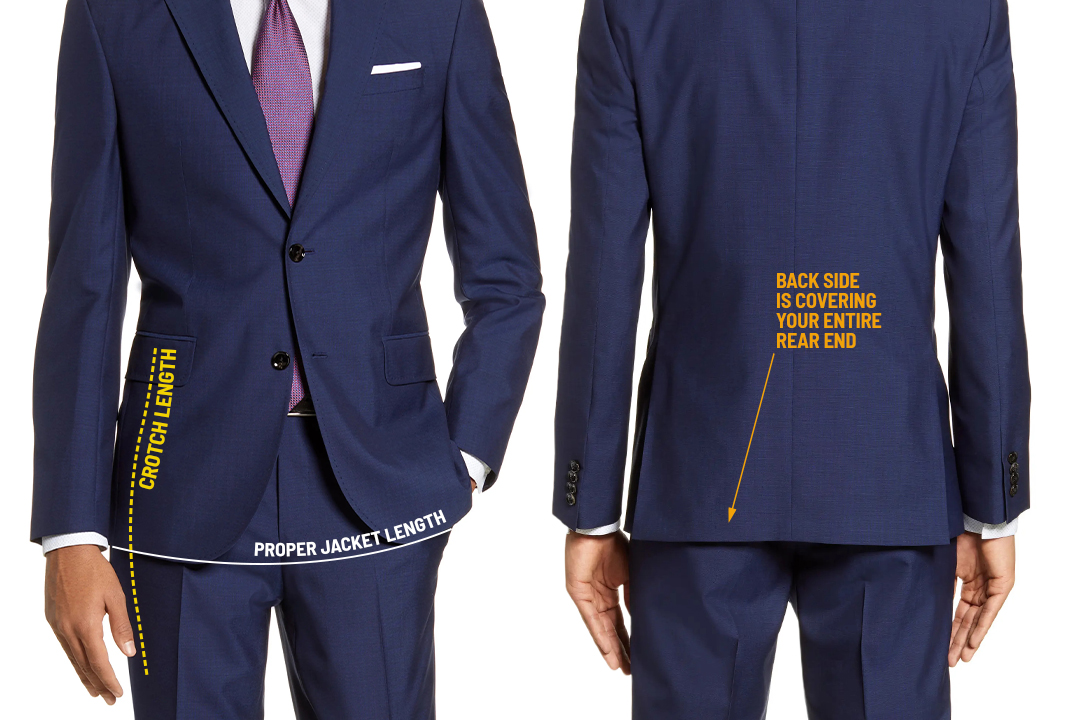
Ideally, the jacket should be long enough to cover your entire buttocks.
Another practical indicator of a proper jacket length is if the jacket ends at the middle crotch level or around the beginning of your palm’s meat.
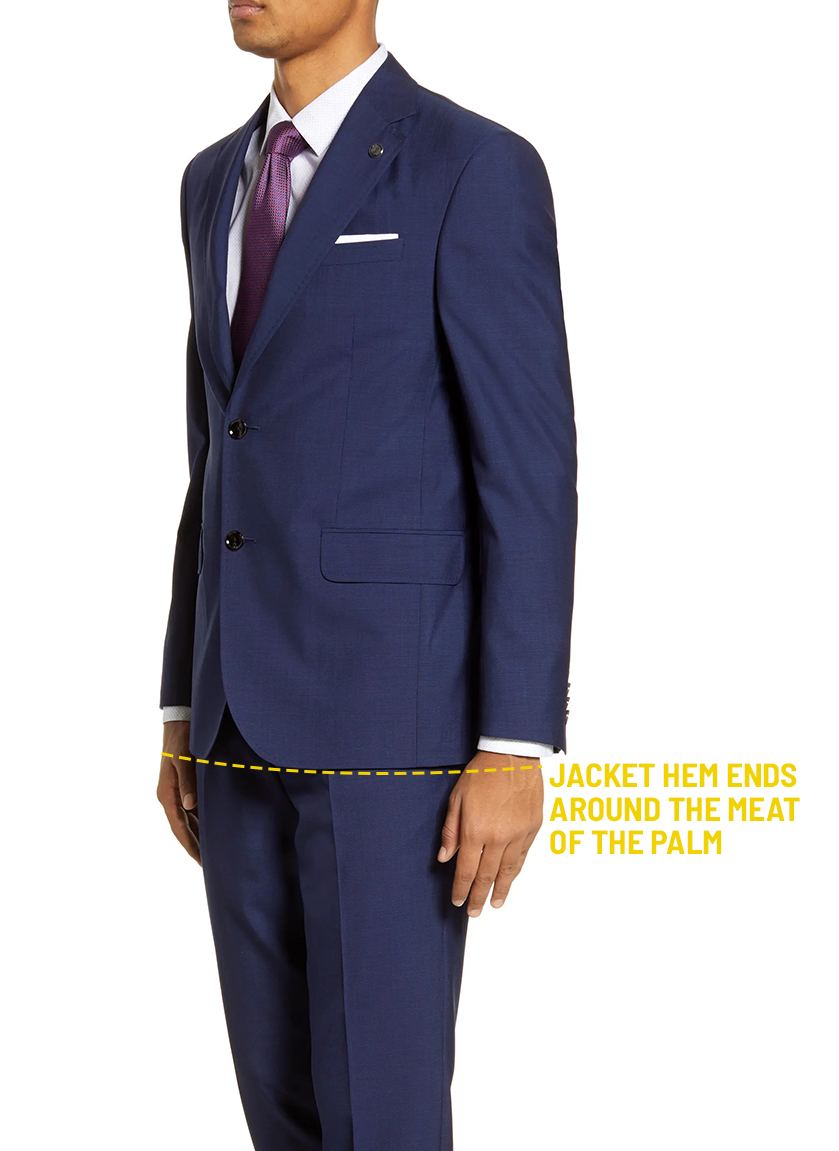
Anything shorter or longer is probably not the right fit.
But other factors such as the sleeve length, shoulder size, and suit cut also help determine your ideal jacket length.
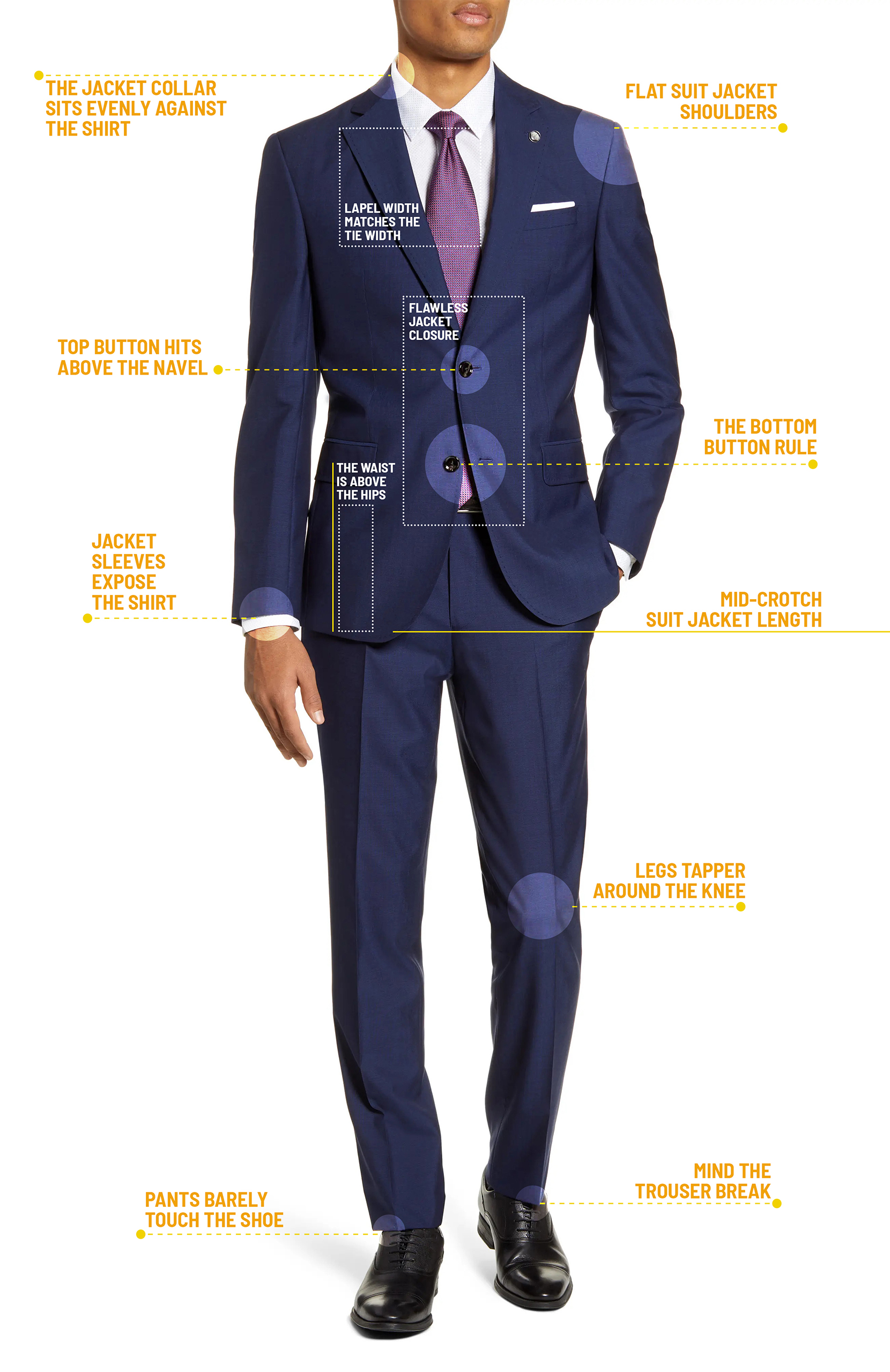
It’s something I discussed when we talked about how the suit should fit, so it would help if you could take a look.
Short vs. Regular vs. Long Fit Jacket Length
But what sets apart, for example, 42R (regular) and 42L (long) suit jackets?
On the other part of the spectrum, you have jackets like 38R (regular) and 38S (small). What’s the difference?
The answer is two things: the suit jacket’s overall length and the sleeve length.
Measuring your height will help you determine which jacket length is the right fit for you.
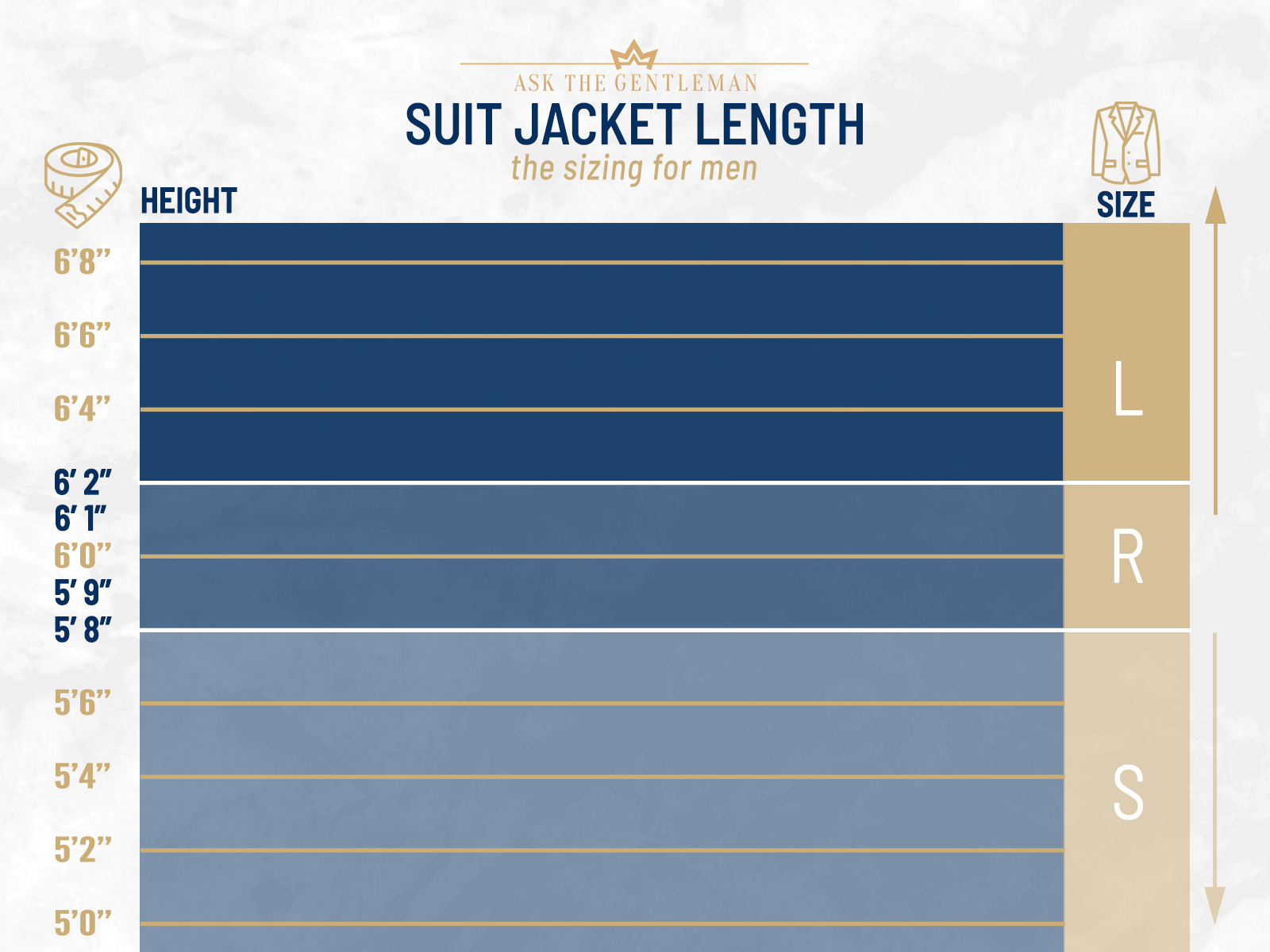
So if you are 5ft 8 inches or shorter, the short-length jacket (S) is for you.
If your height falls between 5ft 8 inches to 6ft 2 inches, the regular length (R) will fit you just fine.
Anyone 6ft 2 inches or taller should always go for the long jacket length (L).
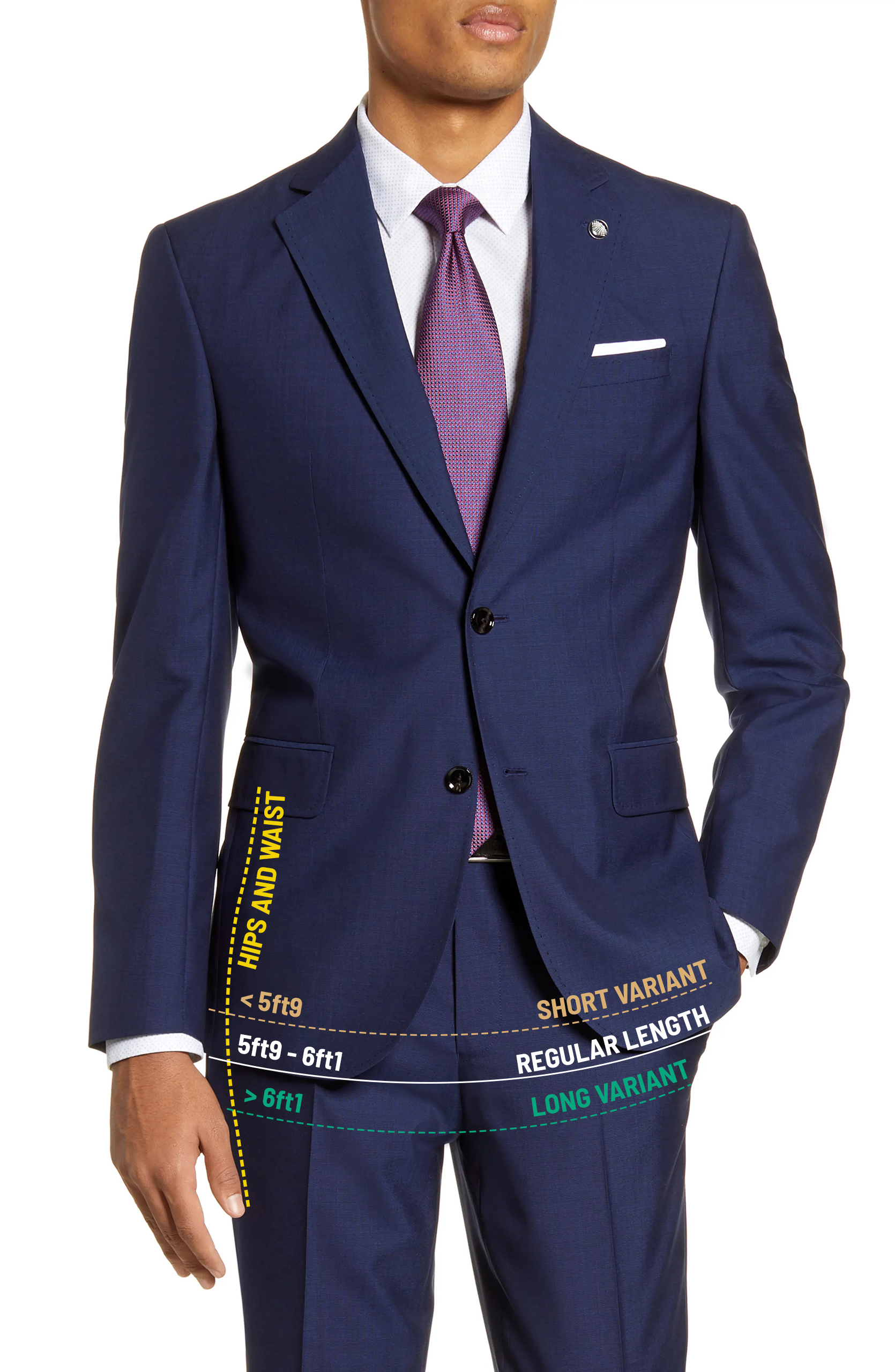
Remember that the bottom hem of your jacket should end at the meat of your palm and cover your buttock.
You must also consider the suit cut to get the right jacket size.
Short vs. Regular vs. Long Fit Jacket Differences in Sleeve Length
You must ensure that the jacket’s length fits perfectly. And that’s what the majority of men consider enough.
But most fail to consider the sleeve length, another vital element of wearing a suit.
The sleeve length must be long enough that a quarter to half-inch of the shirt cuff is exposed under the jacket sleeve.
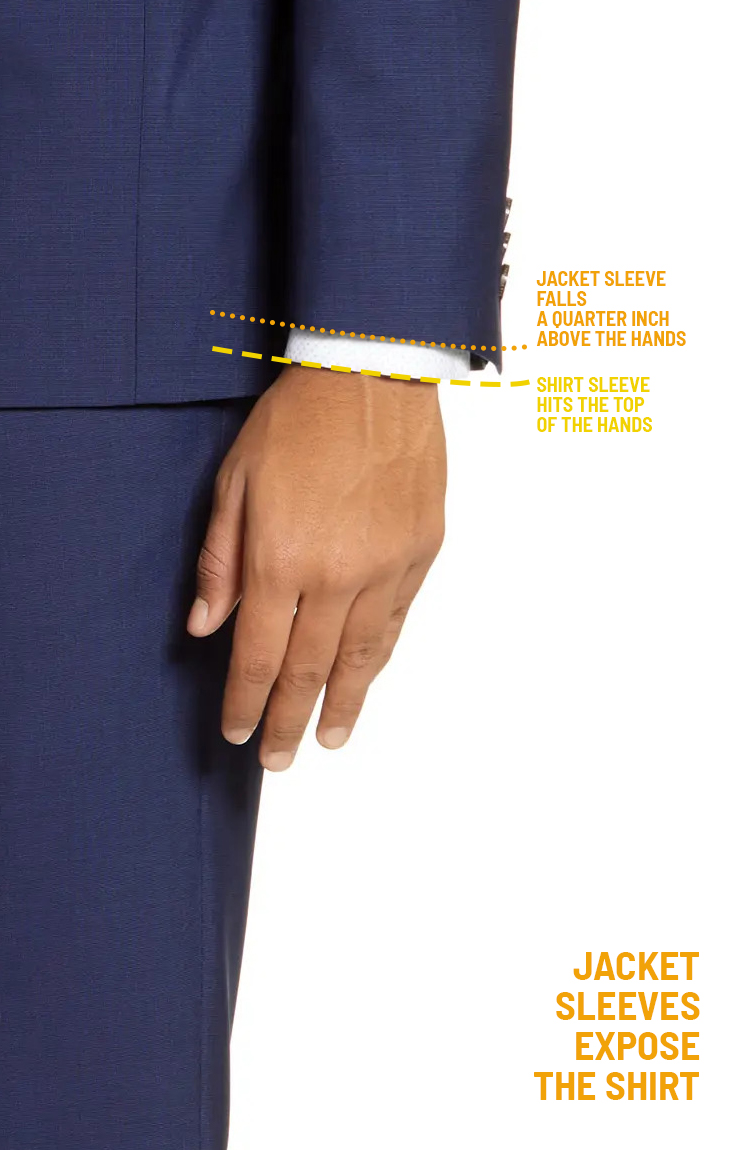
For short-length jackets (labeled S), the body and sleeve length measures 1-3/16″ shorter than a regular-length jacket (labeled R).
Similarly, long-length jackets (labeled L) measure 1-3/16″ longer in both the body and sleeve as compared to regular-length jackets.
Finding the Right Jacket Size
There are a few things one has to consider to find the right jacket length and size: suit cuts, measurements, and comfort.
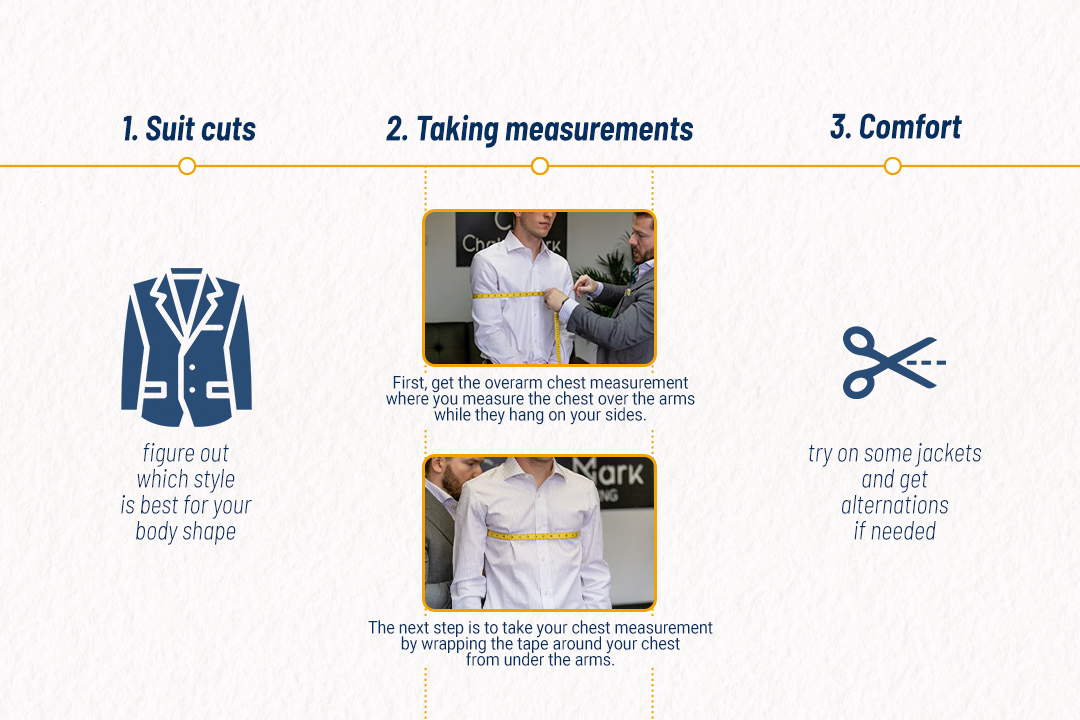
As for the suit cuts (explained below), you first need to figure out which style is best for your body shape.
Then, you need to proceed with taking your suit measurements.
First, calculate the suit jacket length by measuring from your neck down to your crotch and upper thigh area.
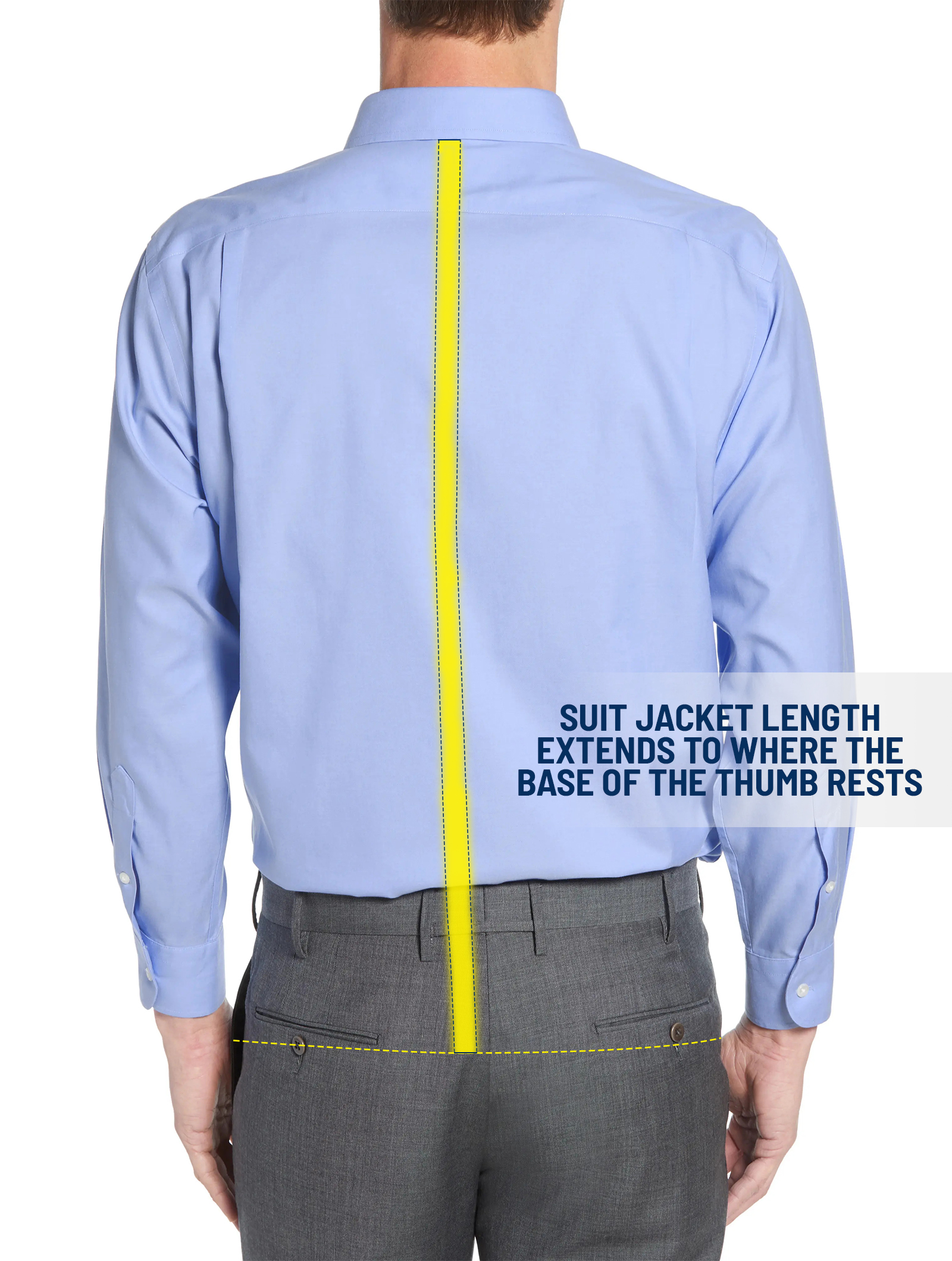
Again, your height determines whether you’ll go for short, regular, or long suit jacket length.
Chest measurement is another crucial element when finding the right jacket size, so get it right.
Take your chest measurement by wrapping the tape around your chest from under the arms. It measures the widest part of your chest.
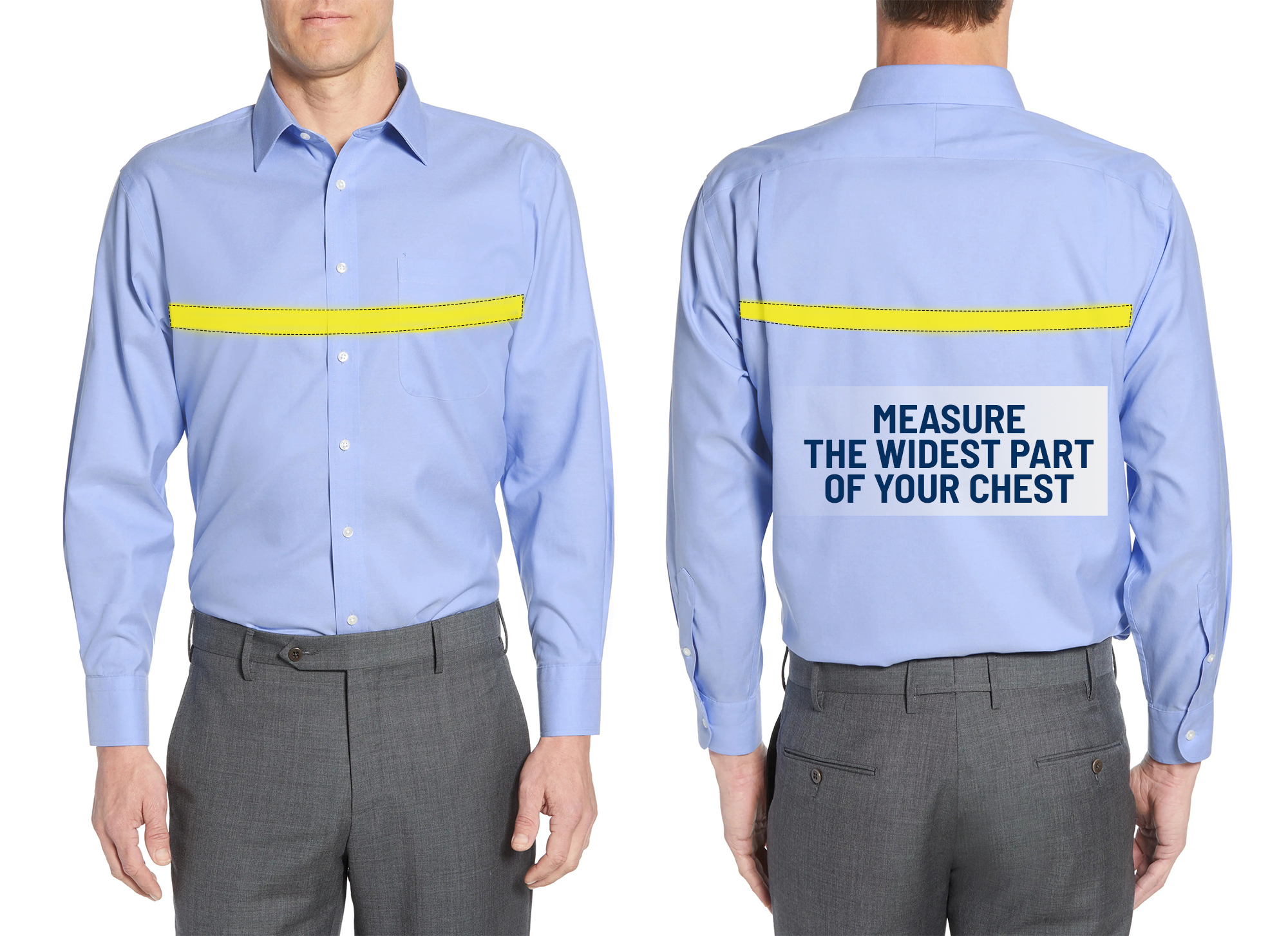
If you have these measurements, you have everything needed to get the right jacket size.
To top it all, if you have followed everything by the book and still don’t feel comfortable wearing the jacket, you can always go for alterations.
Remember, proper jacket length is not just about the measurements but also the comfort it brings you.
Other Aspects of a Well-Fitting Suit Jacket
Most people are unaware of the various aspects of a well-fitting suit jacket.
I talk about this subject often, but it’s always a good idea to refresh your knowledge.
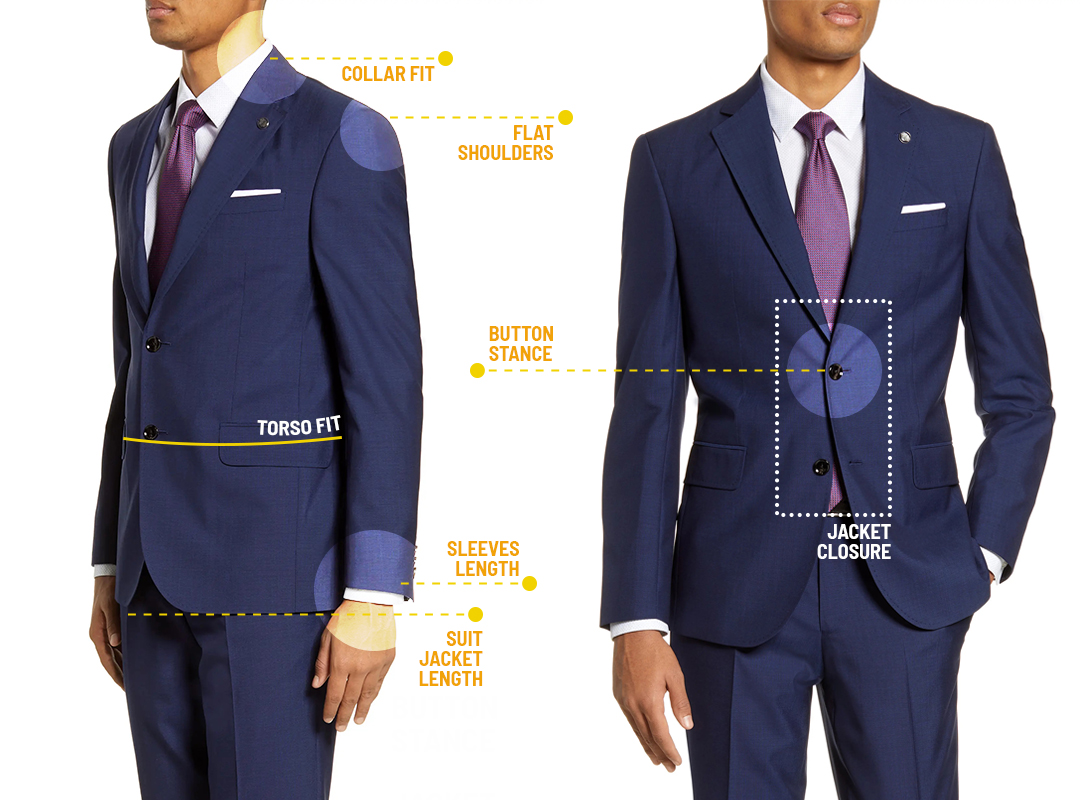
That’s because you can do wonders to the whole suit-wearing experience by getting these aspects right.
You must know that the upper body attracts more attention than the lower body, so the right jacket length is crucial.
It’s also vital that you wear a well-fitted jacket sitting perfectly on your body.
So start by finding the right fit, choosing the right suit size number, and then play with the different suit jacket lengths.
Gentle Hug when Buttoning the Suit
One of the essential aspects of a perfectly fitting jacket is the jacket sitting gently on your body.
It should feel as if it’s gently hugging you when buttoned up.
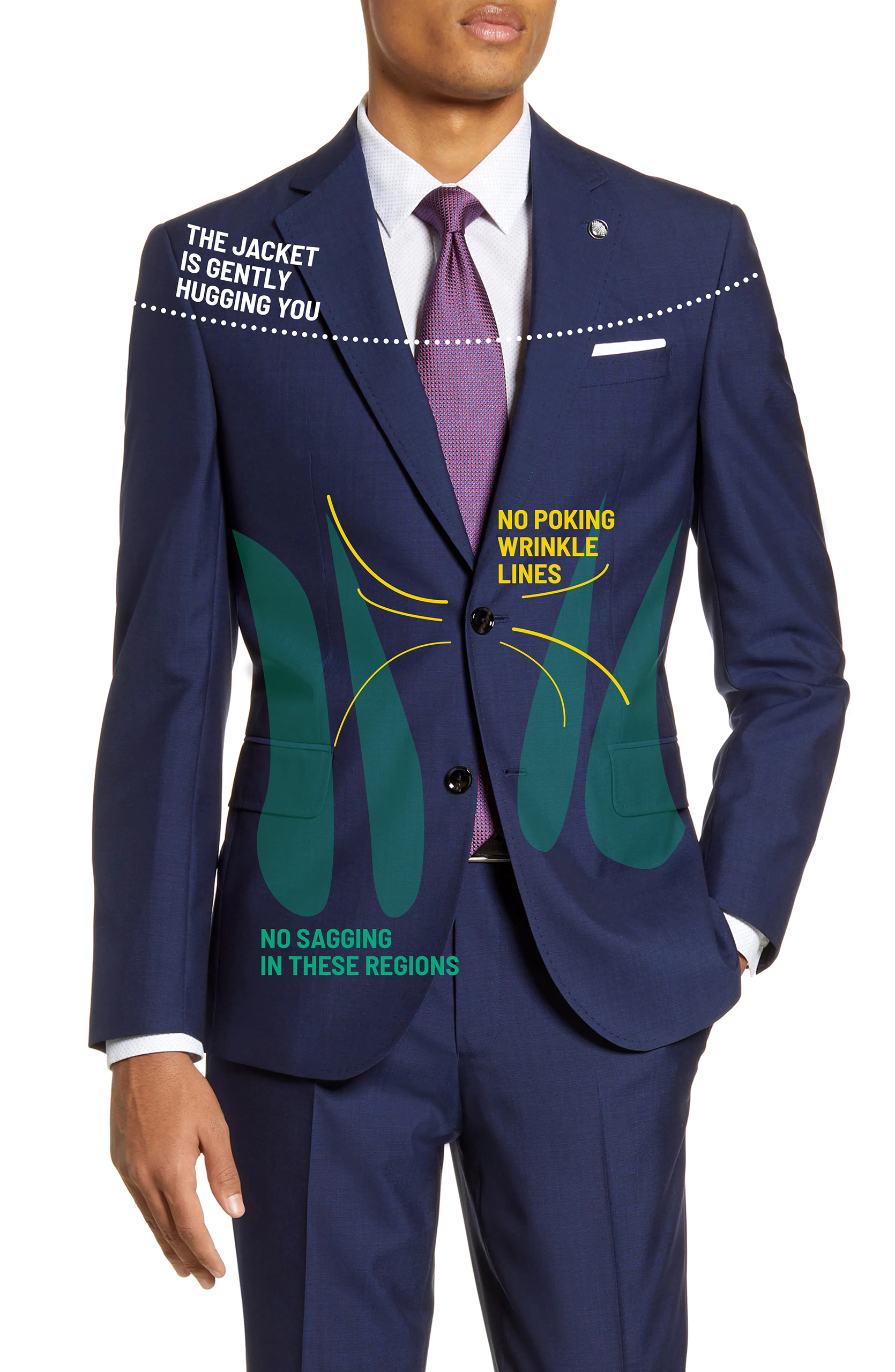
Make sure the button closure is not causing any pull or lines to poke out.
If that is the case, the jacket is a bit too tight for your size and will shrink the jacket length.
On the other hand, if the buttoned-up jacket is sagging forward, it is too loose for your fit.
The perfect way to check this is to put your fist between the jacket buttons and the stomach.
The fist should be able to barely squeeze between the space.
Suit Jacket Shoulders Lie Flat
The jacket shoulder is the next vital aspect of a well-fitting suit jacket.
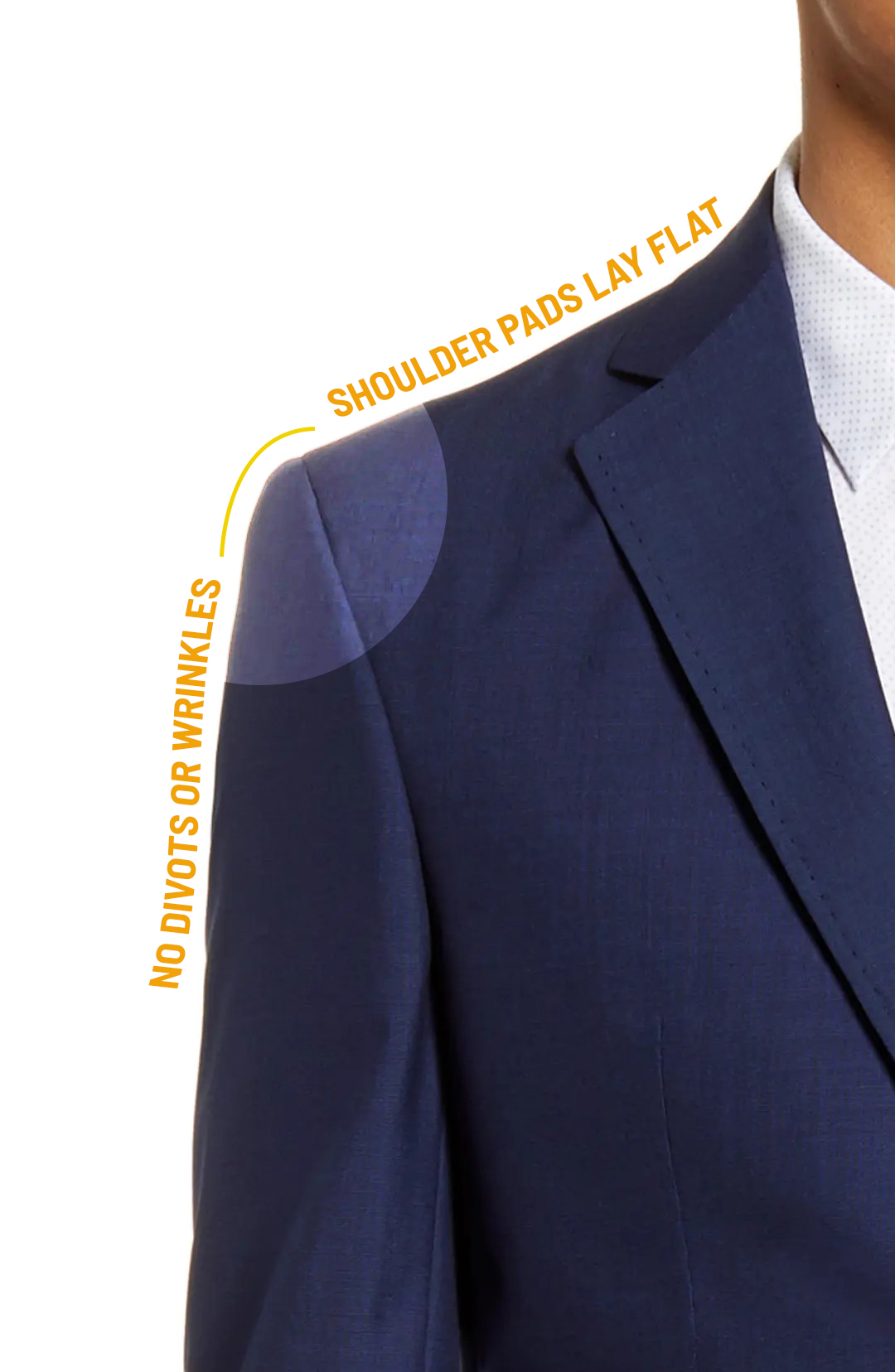
If you notice any divots or wrinkles in the shoulder pads while your arms hang down the sides, it’s a sign of a poorly-fitting jacket.
The shoulders also affect the suit’s jacket length, especially if the jacket is too tight.
That’s because disproportionate shoulders will bunch up the torso and decrease the jacket length.
So try the next one and look for a shoulder sie that sits flat and is not too long or short for achieving the perfect golden ratio.
Armholes are High
Higher armholes provide a perfect-looking aesthetic to your suit jacket.
Still, there needs to be a significant gap between your arms and your torso for the jacket to fit perfectly.
Ideally, there should be two fingers of room between the jacket’s armhole and your armpit for this gap to exist.
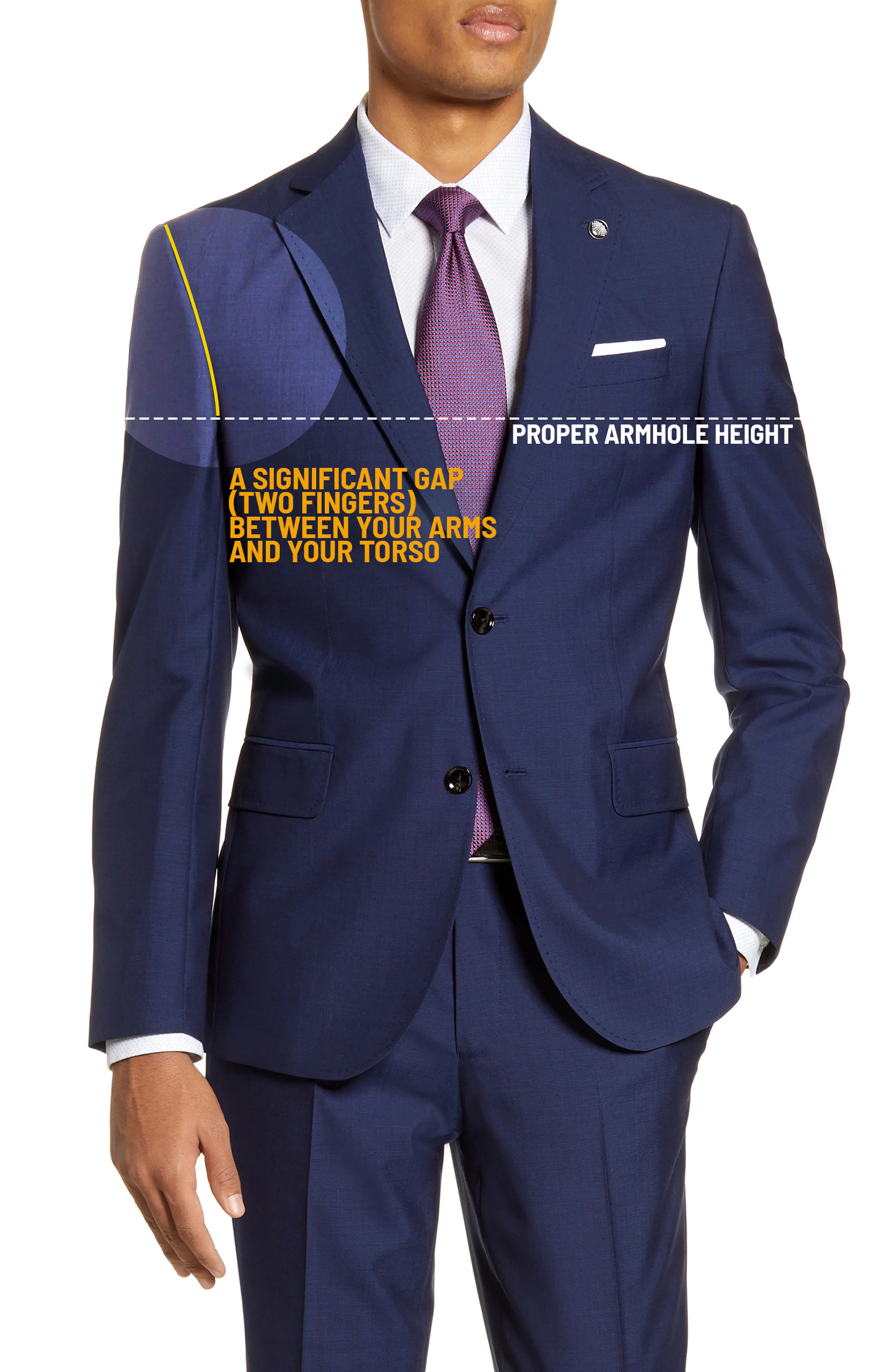
If you find it inconvenient to slide your arm into the armhole, the armhole is small. Additionally, it makes the sleeves tight and uncomfortable.
Similarly, low armholes can make your torso look wide with too much fabric under the arms.
You can easily point out loose sleeves since you won’t be able to feel them as your arm goes in.
Suit Collar Sits Evenly with the Shirt
The collar of your suit jacket, commonly known as the lapel, must sit evenly with the shirt collar.
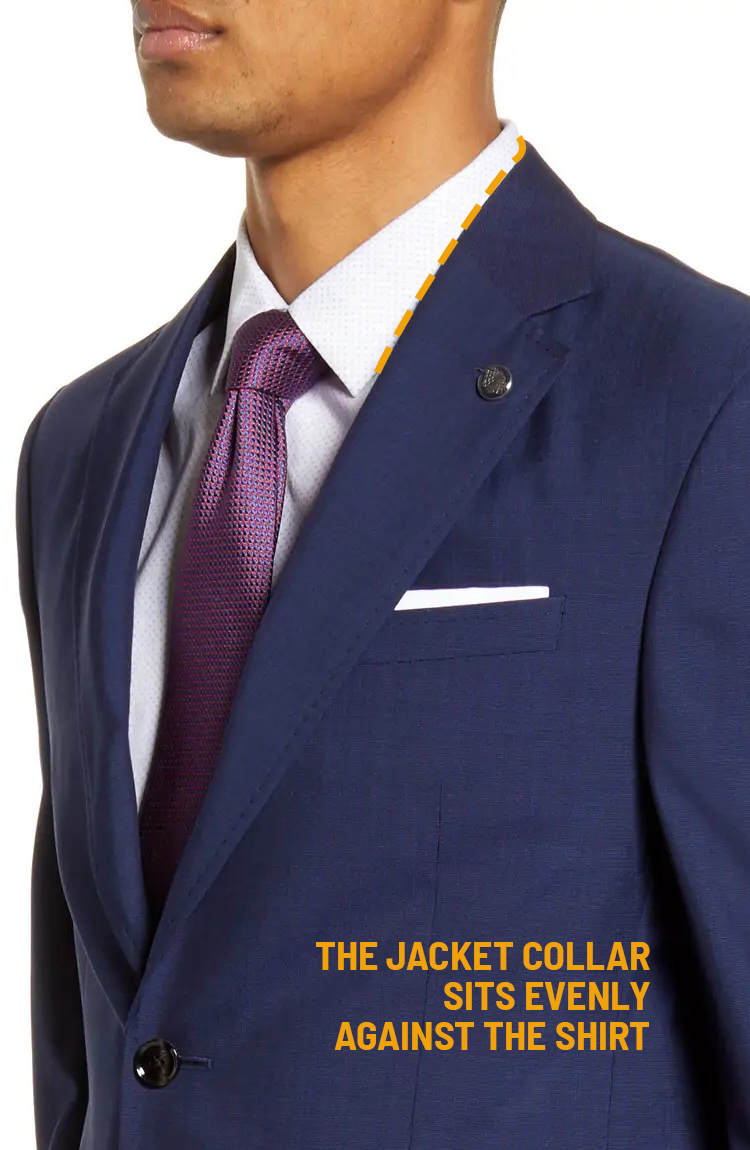
In fact, all three layers at the back of your neck, including the neck skin, shirt collar, and jacket collar, should have slight contact with each other.
It shouldn’t be too restricted or loose – just the right amount to look even and neat.
Different Jacket Fits by Chest Size
The suit jacket comes in different fits, among which the most common are: slim-fit, classic-fit, and modern-fit.
The most significant difference between the three styles lies in the chest size and the waistline.
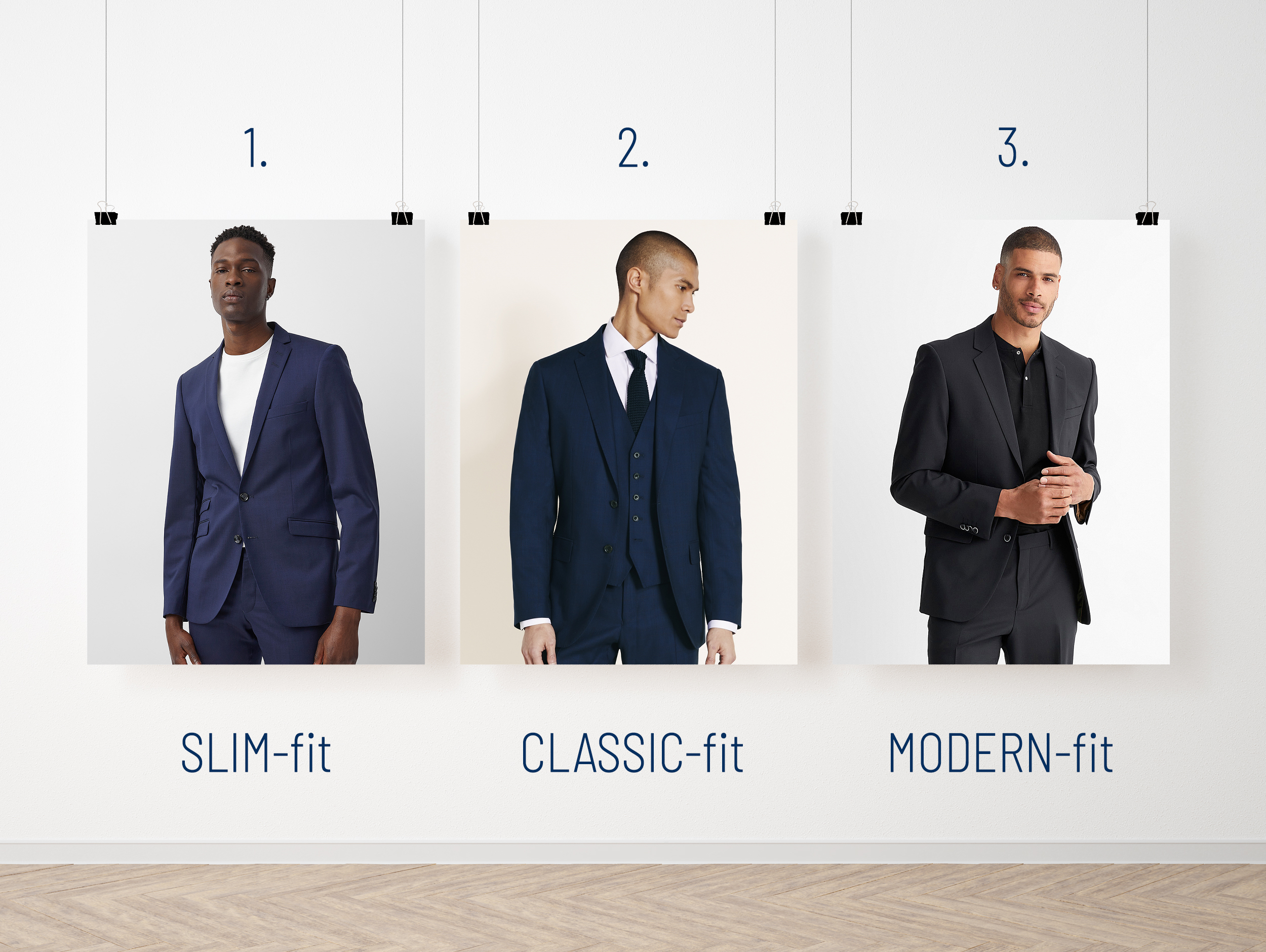
If you are bewildered between a slim fit and a regular-fit suit, always go for a regular fit.
This is because a tailor can easily work around the classic fit to make it the right size for you.
But let’s first see how each fit is different from the others.
Slim-Fit Jackets
The slim-fit jacket is trendier and best for people looking for a European or Italian-inspired look.
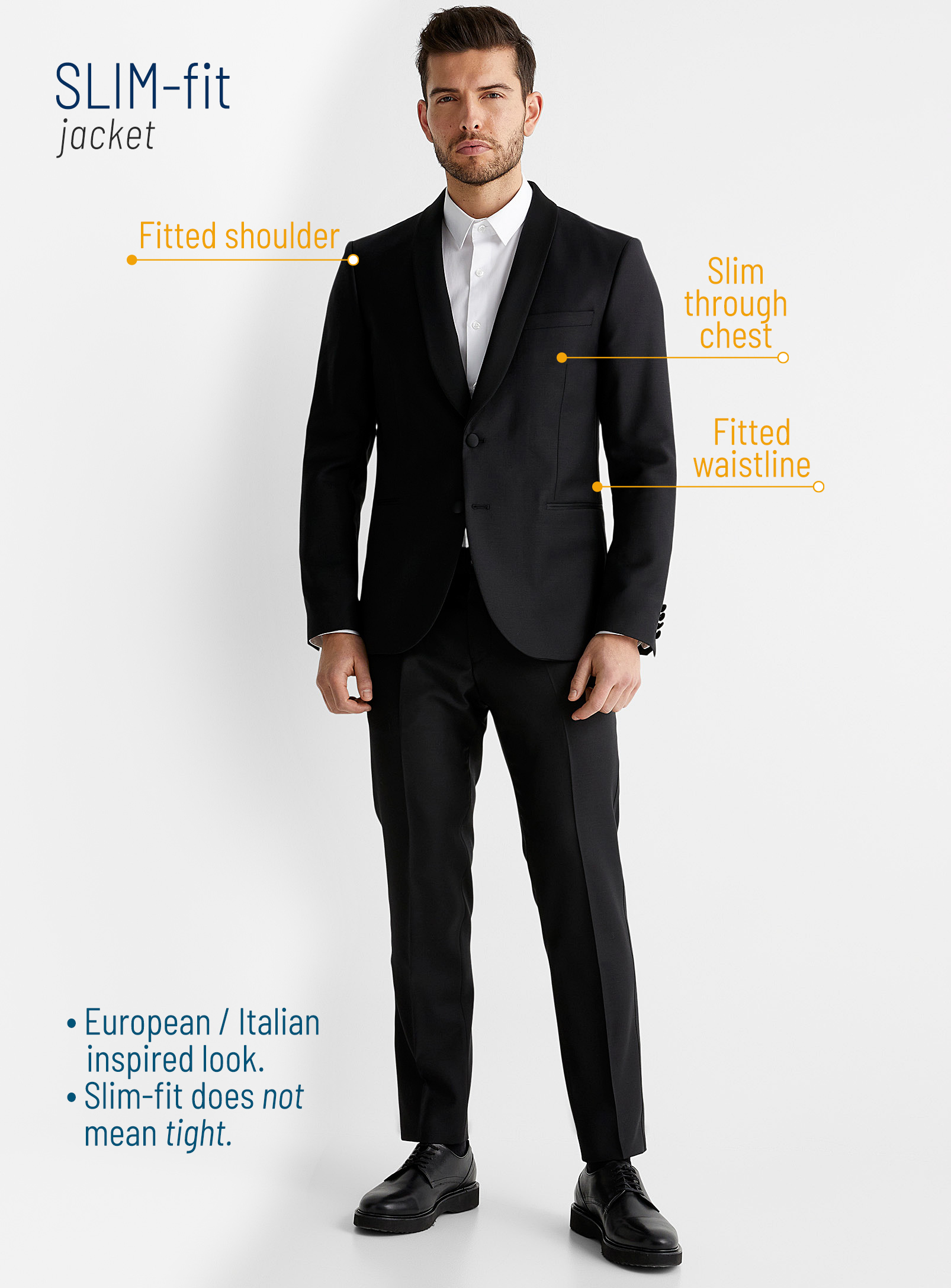
Given the name, a slim-fit jacket sits quite close to the body and chest.
However, slim-fit does not mean tight in any sense.
The fabric used on a slim-fit jacket often comes with a hint of stretch so that it’s not too constricting or uncomfortable to wear.
Slim-fit jackets have grown in popularity, and this is actually what you see the contemporary James Bond wearing in the movies.
Classic-Fit Jackets
When you think of the typical men’s suit in the 1950s US business environments, you are picturing a classic fit suit.
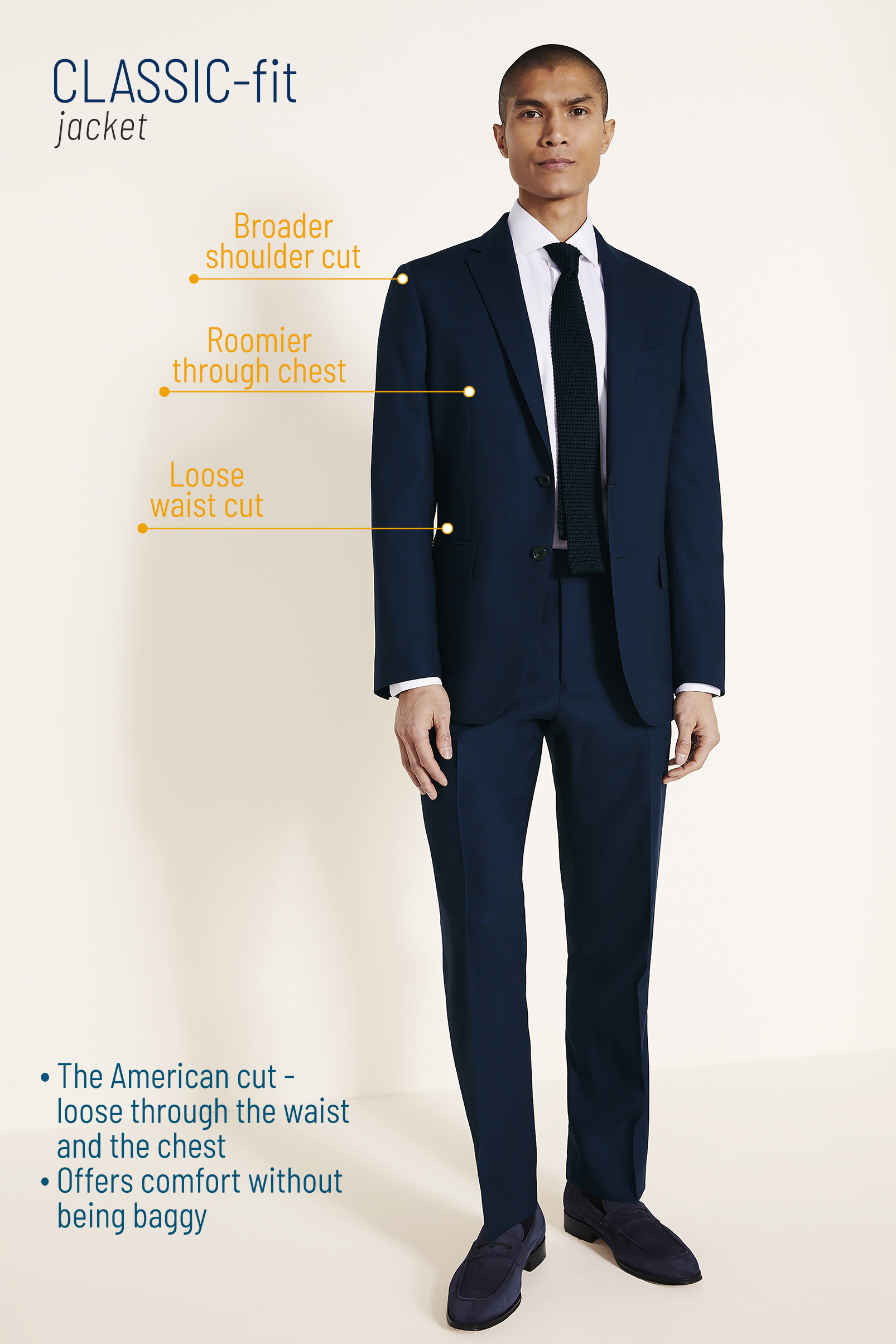
It comes with a liberal cut through the waist and the chest, also known as the American cut.
The whole point of a classic-fit jacket is to offer comfort, space, and a relaxed style without being baggy.
A classic fit jacket might be less constructive than the other two cuts, but it still offers an incredible shape when worn.
If you are a vintage suit lover, nothing beats a vintage suit in a classic fit.
Modern-Fit Jackets
The modern-fit jacket is the middle child of a classic-fit and slim-fit, neither too relaxed nor too snug.
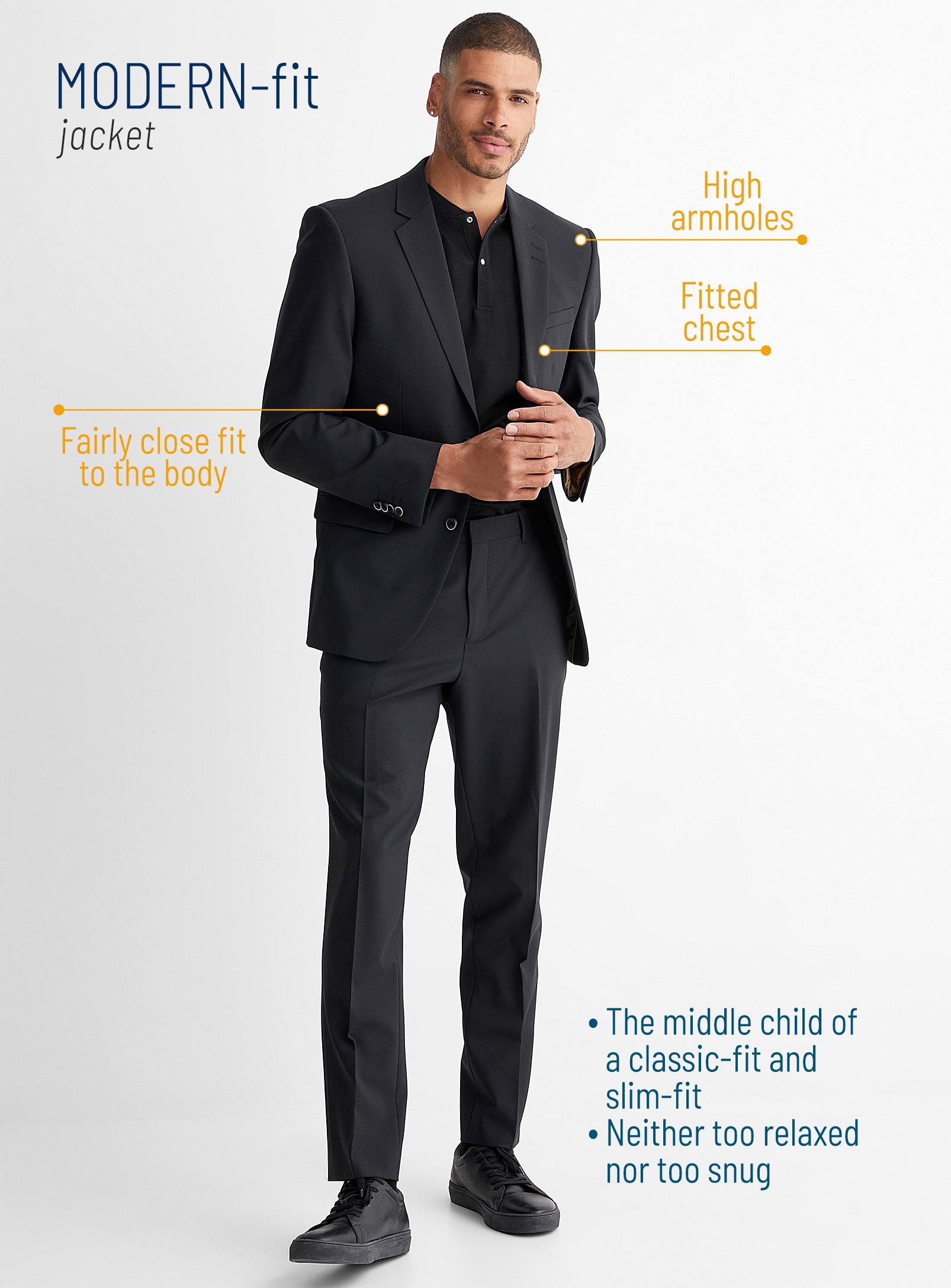
You could say it has the perfect balance between giving out space and sitting close to the body and chest.
Even though it fits closer to the body than a classic fit, it still does not sit close enough as a slim-fit jacket does.

